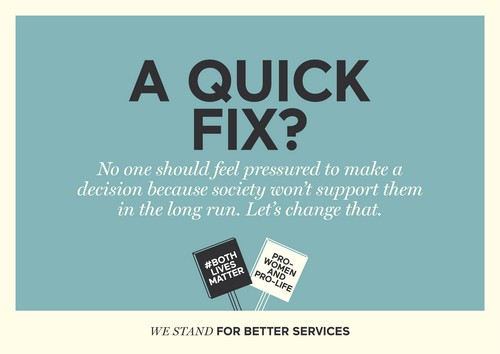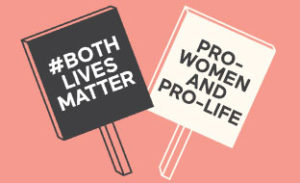As part of a series of reflections for the 50th anniversary of the 1967 Abortion Act, Anne Scanlan, Director of Education and Media at Life, considers how, with the benefit of fifty years of lived experience and government data, we can now understand the impact of that law change. Has the ’67 Act benefited or harmed women?
We hope that these contributions from people across the British Isles and Ireland will provide some much needed context and perspective to this sensitive issue.
“Before the passage of the 1967 Abortion Act people talked about making abortion safe, legal and rare. The Act was introduced to allow abortion for the ‘hard cases’ and yet 50 years on we are ending more than 1 in 5 pregnancies, with 97 per cent of abortions being carried out on what have become very dubious mental health grounds.
Abortions can be performed up to 24 weeks in Great Britain for virtually any reason and if it is discovered that the baby has an abnormality then he or she can be aborted right up until the moment of birth. Twenty seven years ago, a doctor told me I was irresponsible for refusing tests for abnormality and I fear that we have now become so eugenic in our thinking that the time will come when parents will be shunned for giving birth to a child who is less than perfect. In 2016, 3208 abortions were performed for foetal abnormality and that figure is rising year on year. We have seen a 40 per cent increase in abortions for foetal abnormality in the last four years and the lives of unborn children with very minor abnormalities such as cleft lip or club foot are being ended on a disturbingly regular basis.
Now that we can look inside the womb and see how the baby grows and develops it is hard to imagine how the humanity of the unborn child could have been ignored in the abortion debate. But when the Abortion Act was passed they did not have the benefit of ultrasound imaging, as we do now, and life could be incredibly difficult for single mothers. There was huge stigma surrounding single parenthood and little or no social welfare so one can see how people might have been persuaded that abortion could improve the lives of women.
Abortion was introduced to help women in exceptional circumstances but termination of pregnancy has been turned into a multi-million-pound industry. Abortion is costing the British taxpayer more than £100 million every year. Although 98 per cent of abortions are funded by the NHS, 68 per cent of these are carried out in the independent sector and abortion providers are keen to expand their market. The abortion industry has now set its sights on Ireland.
We hear all the time about a woman’s right to choose but Life’s experience of counselling women is that the ‘choice’ is rarely made by the woman herself. More often than not the decision to terminate a pregnancy is made to satisfy someone else or to hide the pregnancy from someone. Alternatives to abortion are rarely if ever discussed and with only one thing on offer women feel they have no choice and end up on the abortion conveyor belt.
After the Abortion Act was introduced, Jack and Nuala Scarsbrick became concerned that opponents of abortion were not consistent in speaking up for life and against abortion even in the ‘hard cases’. They also recognised how easy it would be for women in difficult circumstances to go down the abortion route. This led to them starting Life 47 years ago to continue to oppose abortion in every case except where a woman’s life was at risk, whilst at the same time providing a positive alternative by offering help and support to women and families facing difficult pregnancies.

Most of the work of Life is in helping and supporting women and their families but I head up the Life Matters team that carries out education work. From our experience of talking to young people I can say that sadly the average young person in GB today is pro-choice. This is not because they have looked at the issue and made an informed decision but because abortion is promoted as the solution to a problem pregnancy and no one dares to suggest that abortion might not be a positive choice. The pro-life voice has been silenced on university campuses, in the media and in society in general so young people rarely, if ever, get to hear the case against abortion. Last week a 15-year-old boy suggested to me that a mother should be able to have her baby killed after it was born if she so chooses. The idea that anyone would justify infanticide would have been unthinkable when the Abortion Act was passed but when you spend 50 years convincing people that abortion is acceptable, even up to the moment of birth, is it any wonder that a young person fails to understand why ending the life of a child at nine months plus one day is wrong. A change in the law inevitably brings about a change in culture and sadly this is the result. You must not allow this to happen to the people of Ireland.
To ensure that abortions were only carried out in very limited circumstances the Abortion Act required, and still requires, two doctors to sign a form in good faith to say that the abortion is medically necessary. But abortion providers make no secret of the fact that they find ways to work around the law so the Abortion Act has effectively introduced abortion on demand into GB. You must not allow this to happen in Ireland.
The humanity of the unborn child is undeniable and there is mounting evidence of the harm that abortion causes women. If pro-abortion advocates get their way, and abortion is introduced into Ireland, many more lives will be lost and many more women will be damaged. For the sake of Irish women, Irish children and Irish society you must continue to resist pressure from the pro-abortion lobby and continue to promote the idea that Both Lives Matter.”

